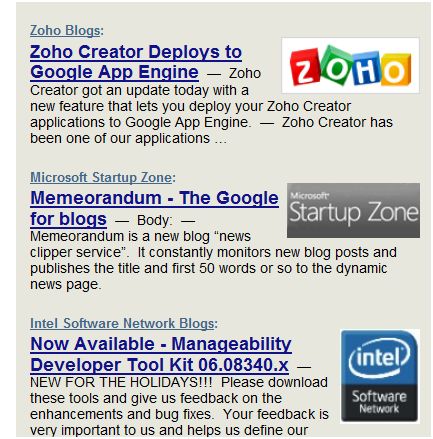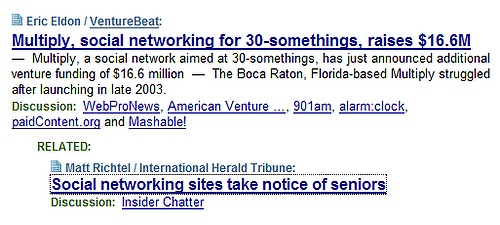TechMeme recently gave up trying to get a 100% working algorithm, instead Gabe switched to half-manual (edited) mode. I suppose and along with it came emotions, otherwise how could we explain TechMeme getting nostalgic. There’s an antique classic in the sponsors’ display:
Memeorandum – The Google for blogs on Microsoft’s Startup Zone. First I got suspicious – is someone recycling TechMeme’s original name for a new venture? But no, clicking through takes us to a fresh post just off the press, dated January 10th, 2005. Don Dodage announces:
Memeorandum is a new blog “news clipper service”. It constantly monitors new blog posts and publishes the title and first 50 words or so to the dynamic news page. The page updates every few minutes with new high quality material. There are currently two news pages. One for technology and another for politics.
Obviously a glitch, I don’s suppose you’ll see it long on TechMeme. Oh, and Happy Birthday, TechMeme ( the 4th, I suppose, more or less).






Recent Comments